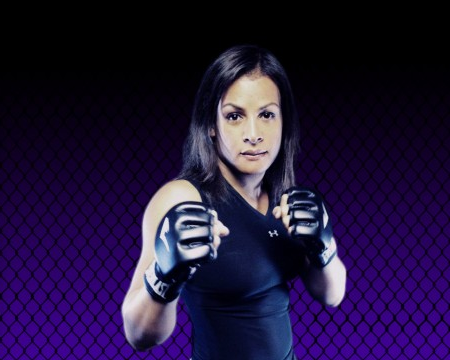To be honest, I got into MMA and wrestling only after my boyfriend introduced me to it. As it turns out, there actually is something of an appeal to watching overly muscled men beat each other up. It’s called foreplay.
Not only are mixed martial arts a great way to watch muscular, sweaty, nearly naked men roll around the floor with each other, but it’s also increasingly becoming a venue for LGBT visibility. Not only do they have openly gay fighters like Shad Smith and Liz Carmouche, but Fallon Fox, a fighter for the Champion Fighting Alliance, has recently come out as trans.
“For years I’ve known at some point it’s very likely the shoe would drop,” Fox is quoted in the interview as saying. “Maybe someone would guess that I’m trans. Maybe they would know me from my life before I transitioned. I’ve been waiting for that phone call to happen. And Saturday night, it happened.”
AdvertisementPart of her reluctance to come out has had a lot to do with concerns over who she’ll be perceived by her fellow athletes, saying that people have “seen me as a woman.”
“I’m technically, legally, physically and mentally female. Everything about me is female,” she says, before adding, “I happen to fall into the transgender category, but I rather describe myself as a woman first, transsexual woman second.” [SOURCE]
For the record, I am firmly in favour of queer people in the MMA. Partly because I enjoy seeing the stereotype of LGBT people as weak and helpless being metaphorically shattered by literal punches, but also because good god, have you ever watched a UFC bout? It’s basically porn. It would be weirder if you didn’t masturbate to it.

[IMG credit: fallonfoxmma.com]
 Why you can trust Xtra
Why you can trust Xtra


